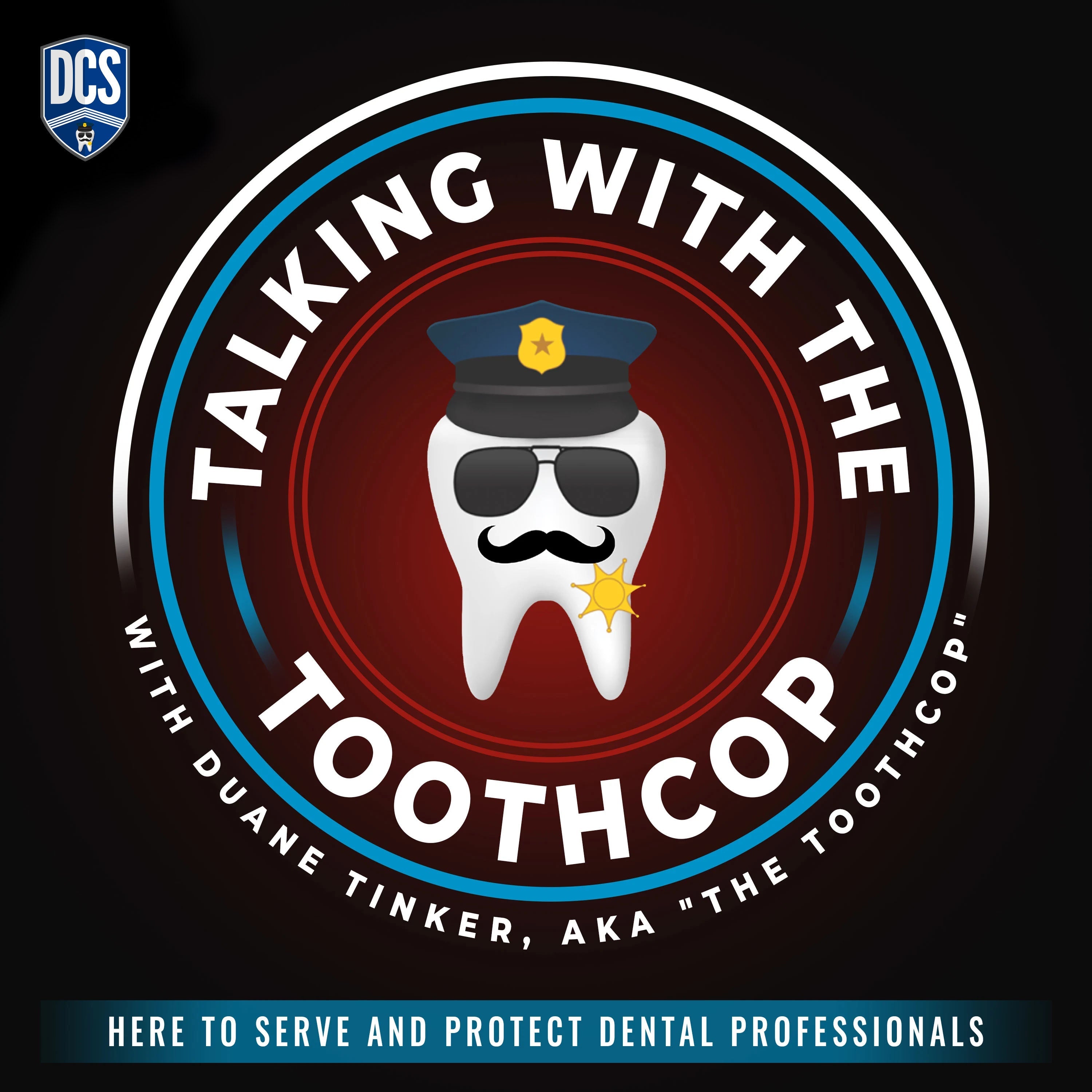The Texas State Board of Dental Examiners has released new regulations regarding nitrous oxide delivery. These regulations are going to change the way your practice handles routine business, and you need to be aware of them. In this episode of Talking With the Toothcop, I outline the new 3 main rules, what requirements have not changed, and why your office needs to take these changes seriously. Note that these rules apply to all levels of nitrous oxide delivery and sedation and they are applicable for patients of all ages. It’s a complicated subject with many details, so to get the full story, listen to this podcast episode.
These requirements have not changed, even after the implementation of the new regulations
Even with the new regulations, a few staples of dental care have not changed. You must employ qualified, trained staff who can identify problems and emergencies in your practice. Evaluating patients prior to sedation, utilizing consultations if necessary, and having written, expressed, and informed consent is still required when using nitrous oxide or any other method of sedation. Equipment checks must be completed thoroughly and regularly and proper patient records kept. You must also ensure all staff members are aware of who can and cannot be involved in delivering sedative drugs. To hear the full list of regulations that are still in place, be sure to listen.
New rule #1 – Preoperative checklists must be completed
This rule applies to sedating any patient via any method. The TSBDE now required offices to “create and maintain in the patient’s dental record” a checklist entitled “Preoperative Sedation Anesthesia Checklist.” Included in this checklist must be the following:
- Medical history review
- Confirmation of informed consent
- Confirmation of delivery of pre/post-procedure instructions
- Physical examination
- Equipment readiness check confirmations
- Any special preoperative considerations
- Documentation for any/all reasons why portions of the checklist were not completed
This checklist may physically or electronically be stored and the same checklist should be used by the dentist and anesthesiologist. It may be completed at any time prior to delivery of nitrous, but it must be repeated prior to ALL instances of delivery. For all of the details regarding the new checklist, don’t miss this episode.
New rule #2 – Offices must write emergency procedures and hold training sessions
Every office now must have written policy procedures in place detailing how they are to handle emergency situations. Special attention must be given to respiratory crises and how the office will stock, monitor, and restock emergency kits. Staff must be trained regularly on these procedures to ensure everyone knows their responsibility during an emergency. It’s important to remember to not assign specific individuals emergency duties, but rather assign it to a position. Annual review sessions should be held as well to revise these procedures as necessary.
New rule #3 – Permit holders must have the proper drugs on-site and immediately available
Every dental office must be diligent in the way they keep records on nitrous oxide delivery. Special attention should be given to medicine cabinets and storage units to ensure expired drugs are disposed of and restocked with fresh supplies on a regular basis. Emergency kits with reversal drugs, AEDs with fresh batteries, and other necessary equipment should also be carefully monitored.
These new rules were established to ensure dental patients are receiving the best care possible. To ensure your practice is compliant, be sure to get the full story by listening to this episode of Talking With the Tooth Cop.
Outline of This Episode
- [0:22] New nitrous oxide delivery rules are covered in this episode of Talking With the Toothcop.
- [2:33] Existing regulations on nitrous oxide delivery and office equipment
- [7:25] Equipment checks are necessary and IFUs should be present at all times
- [14:40] Preoperative documentation is required in these main areas
- [19:01] The dentist is the sole person responsible for these duties regarding nitrous delivery
- [21:57] Latest information on the AAPD guidelines for nitrous oxide delivery
- [28:35] Post-operative discharge record-keeping requirements
- [35:05] New rule #1 – Preoperative checklist must be completed
- [40:22] Why are these new rules so strict?
- [43:05] New rule #2 – All permit holders for nitrous oxide must create emergency preparedness procedure manuals and hold training sessions for all staff
- [48:14] New rule #3 – Permit holder must have the proper drugs on-site and immediately available
- [50:53] These new rules are required for all levels of nitrous administration and sedation
- [54:01] What comes next after these rules?
- [56:00] Where to turn for resources about these new rules
Resources & People Mentioned
Connect With Duane
- https://www.dentalcompliance.com/
- toothcop@dentalcompliance.com
- On Facebook
- On Twitter
- On LinkedIn


